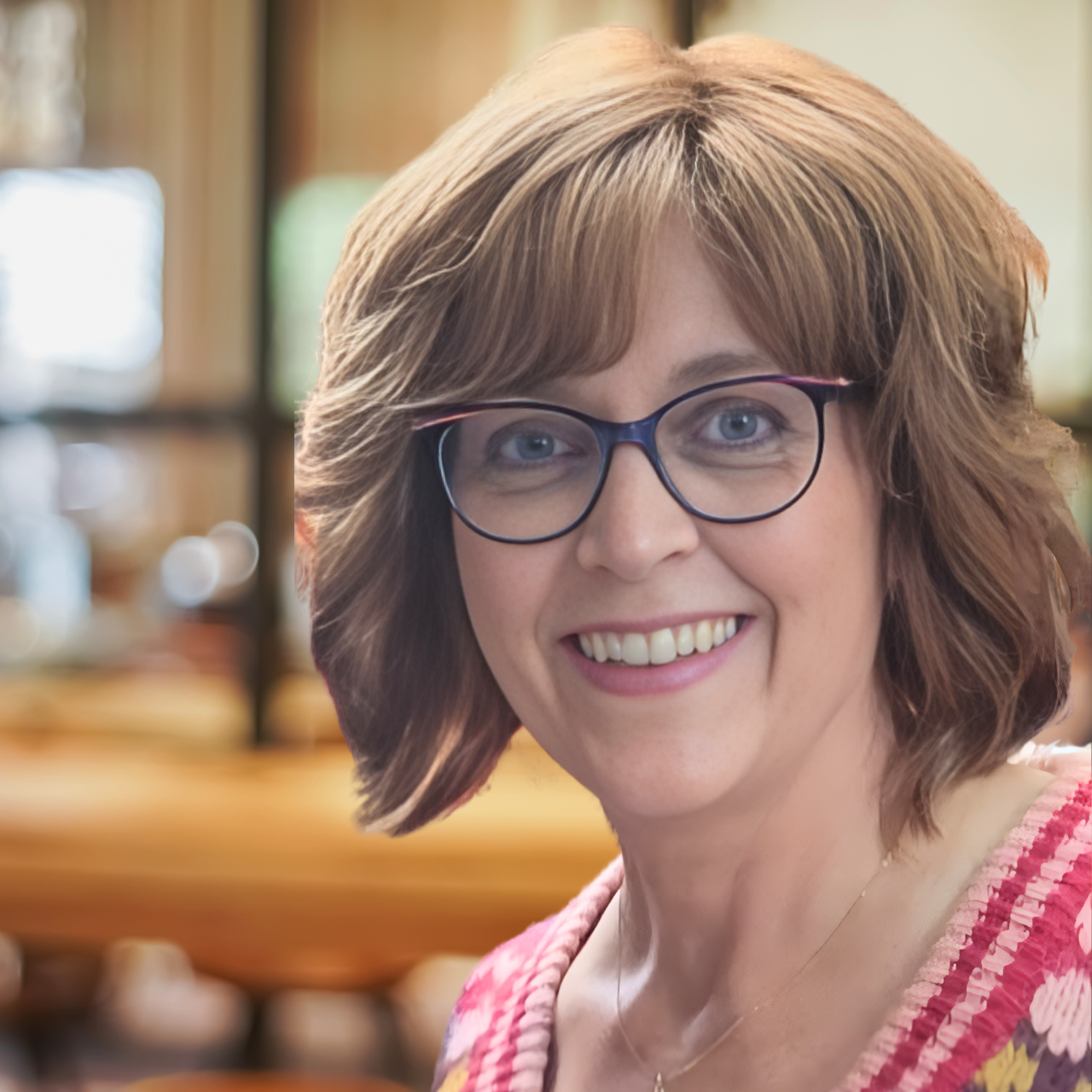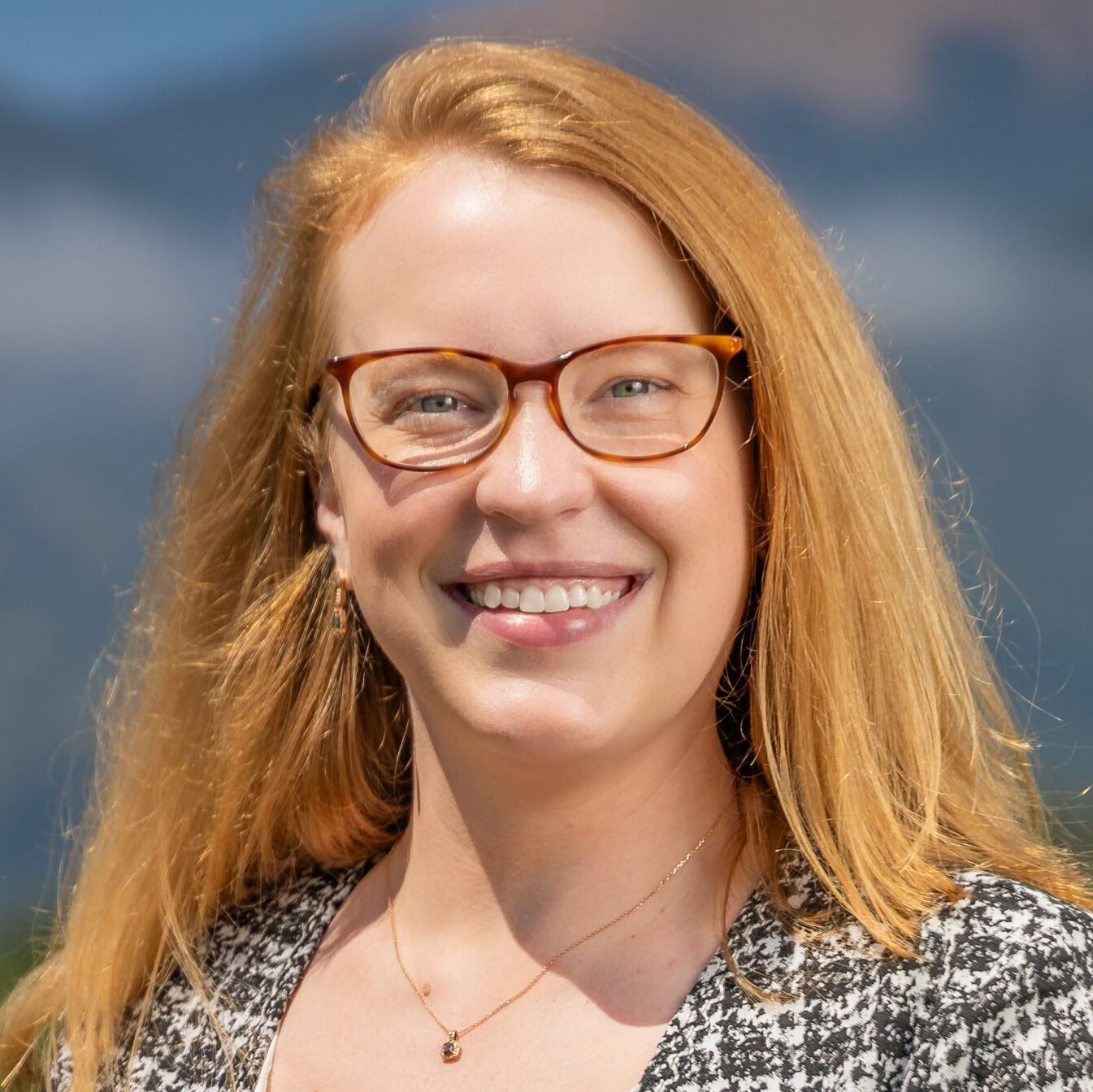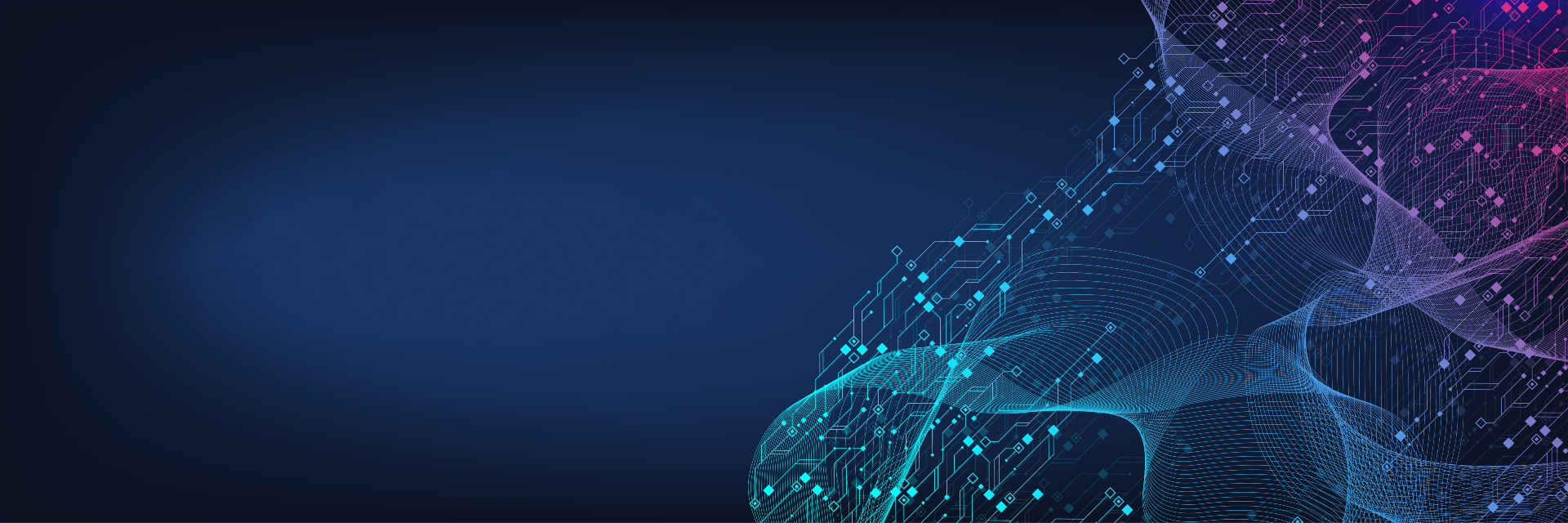Leadership Team
Alexandra Tyler, M.S., LMFT
Alexandra Tyler is the founder of the E3-Intiative. She has over 20 years of experience supporting highly diverse children, adolescents, adults, and families who often believe very few people can understand or accept their differences.
Throughout her career, a unifying thread has been her deep commitment to serving people that often find themselves marginalized, unseen and misunderstood by the mainstream segments of society. Her dedication to supporting these individuals stems from an unwavering belief in the inherent potential, resilience, and the richness we all bring to our collective human experience.

Alex provides psychotherapy services in private practice at Tyler Institute and specializes in supporting high potential children, adolescents, and adults. She is a specialist in performance enhancement and executive functioning skill development. Alex offers services from a holistic perspective addressing the needs of the mind, body, heart, and spirit honoring the worldviews, culture, diversity, and beliefs of the client.
Alex also specializes in therapy and coaching for individuals who report spiritually transformative or anomalous experiences. Experiencers are individuals who often seek understanding, acceptance, and tools to navigate multidimensional realities and to integrate what they experienced into their daily life. The predominant belief of the mainstream continues to dismiss and misunderstand these experiences.
Life struggles are inescapable. But societal pressures to conform to expectations of what is “acceptable” and membership in our society are defined adds incredible pressure that goes against our own instincts to evolve, embrace diversity, and become more connected with each other. This disconnection brings about societal marginalization which compounds trauma to individuals, communities, society and to the Earth.
Even with advancements in our society, negative attitudes and judgements continue towards those who choose an alternative path to healing and well-being, whether spiritual, healing, practices cultivating alternate states of consciousness or the development of psychic abilities.
These stigmatizing beliefs still dominate the cultural narrative with messages to fit into consensus reality of – who we are, what we believe and how we are supposed to behave to be accepted. It is perpetuating illness and prevents us from evolving into the multidimensional, multifaceted beings that we are.
We need to embrace the re-enchantment of our world where nothing is left behind.
We are being called to hold paradoxes ignited by what we have labeled “anomalous experiences” and embrace increased tolerance for ambiguity of the unknown in tandem with expanding beliefs about human identity & capabilities, reality and collective knowledge. We need to advance our important scientific inquires into new territory with post-materialist scientific perspectives, quantum theories and exploration of Integral post-rational human development to ask better questions and expand our understanding of consciousness and reality in the cosmos.
It is time to engage our fundamental shared humanity, valuing each fellow human being in the brilliance of their light and honoring our shared journeys. It is time to accept and listen to our vast diversity within our common and extraordinary human experiences. It leads us to cultivate compassion and healing within ourselves, and cultivates wisdom and compassion with all sentient beings and our environment.
This… is the beautiful world vision many are manifesting today.
We need to continue to empower more voices.
By founding the E³ Initiative, this mission continues to encompass the unique and powerful stories of exceptional experiencers to validate and support their journey with expertise and compassion.
Why I founded the Exceptional Experiencer Empowerment (E³) initiative
My journey that led to the creation of the E³ Initiative started after my own profound, ongoing spiritually transformative experiences. As I traversed the path to integrate many types of anomalous experiences, it was clear that resources and expert advice, especially in the mental health field, were sorely lacking. I was led to transition my career to advance the field of care and support for experiencers.
The weight of societal stigma keeps many people silent, with repercussions ranging from emotional scars to tragically lost lives when there is inadequate, or no access to compassionate, open-minded and specialized care. I am dedicated to changing this culture for the sake of all who experience the phenomena, which by estimates in recent surveys could be 50% – 75% of the global population over the course of a lifetime. And, it has been estimated that approximately 50% of experiencers of anomalous phenomena report distress and lack of support to integrate these experiences.
This cultural disconnect spans all echelons of society. Individuals from all walks of life are susceptible to societal backlash. The most common fear expressed by experiencers who don’t talk about their experiences is they don’t want to be viewed as “crazy” or involved in fringed new age or paranoid conspiracy beliefs.
It shouldn’t be so hard to find credible, helpful resources. And no one should have to walk this path alone.
However, a paradigm shift is emerging. In recent years, more experiencers are courageously sharing their stories and collectively expanding the narrative. The demand for a supportive, understanding society is palpable.
We are beginning to gain momentum and mass with our collective voices, speaking in unison about this reality that we are more than just what we objectively “see” and scientifically “prove.” And we are illuminating the potential for transcendent change revealed within exceptional experiences. The expert voices who have previously spoken out from within siloed, marginalized professions are beginning to increase in visibility and are gaining mainstream credibility.
Compassionate care is what everyone deserves and should have access to. The American Psychological Association has published ethical competencies to include spiritual beliefs in treatment as vital to being multiculturally competent. The APA has also published extensive research in regard to varieties of anomalous experiences as it impacts assessment and treatment.
We are committed to mobilizing resources for experiencers through the E³ Initiative. We are dedicated to promoting experts who illuminate ethical standards for best practice in the mental health field, to organize professionals to collaborate, gain expertise and to speak publicly with a validating message about what helps us activate our human potential for spiritual and consciousness development while supporting the whole person and their needs.
We hope to usher in a new era of public and professional understanding and advocacy to empower a positive social narrative about exceptional experiences as drivers for the development of normal human potential in spiritual and consciousness capacities. It is widely acknowledged that we are spiritual beings with a consciousness we don’t completely understand, and addressing this aspect of ourselves is vital to our sense of wellbeing. Having safe places to discuss and integrate evolving beliefs and mysterious experiences is equally important to integrate into our life as developing cognitive, emotional, physical, and social experiences for health and wellbeing. We shouldn’t have to leave any part of our life experience behind.
David Salisbury Brown Mitchell, Ph.D.
David Salisbury Brown Mitchell, Ph.D., is an Assistant Professor in the Department of Integral and Transpersonal Psychology at the California Institute of Integral Studies (CIIS). Prior to starting his current academic appointment, he served as faculty at the University of West Georgia and at Trinity Washington University. Courses that he has taught at these institutions include Advanced Topics: Transpersonal Psychology, Memory and the Self: Contextual Considerations, Unconscious Roots of Racism, and Transpersonal Development.

Dr. Mitchell has a deep and abiding interest in bridging mystery with the mundane. Following these passions, his primary scholarly pursuits include transdisciplinary approaches to exceptional experiences, deep memory, and contemplative practice, as well as the cultural and environmental correlates of these subjects of study. A past project in which he was involved was initiated by the Healthy Parks Healthy People movement and was a multidisciplinary collaboration between the National Park Service and researchers at Howard University to uncover potential means of increasing and diversifying visitorship to the Grand Canyon National Park. Dr. Mitchell’s role in the endeavor was to recommend and develop mindfulness-based practices to ground visitors in their experience in this awe-inspiring natural setting.
Some of his other areas of interest include the psychological relevance of liminal entities found within Indigenous myth and ancient Kemetic (i.e., pre-dynastic Egyptian) thought, particularly regarding their relevance for understanding death anxiety and for cultivating transpersonal identity. From the hungry ghost or preta of Buddhist and Taoist lineages, to Yurugu of Dogon cosmology and more, our world is replete with teachings about the dangers, blessings, and lessons that such entities offer. These narratives and their relevance for exceptional human experiences compose a significant subset of Dr. Mitchell’s interests.
Writings of his that are related to these aforementioned areas of study include a 2023 book chapter titled “What goes bump in the psyche: Relict hominoids and reality shifts as existential threats to Western culture,” a 2022 article titled “Of color-confrontation and consumption: Black and Buddhist insights into racism,” and a 2020 article co-authored with Dr. Christine Simmonds-Moore titled Research resonance: Reflections on the Exceptional Experiences Research Lab. This last article was published in the Mindfield Bulletin of the Parapsychological Association and details the history and vision of the Exceptional Experiences Research Lab (EERL) that the two founded at the University of West Georgia.
Some of Dr. Mitchell’s current scholarly projects involve collaborations with colleagues at the University of West Georgia. One study that he spearheaded is a joint effort between himself, archaeological anthropologist Dr. Nathan Lawres, and undergraduate research assistants, to study potential geophysical correlates of cases from the archives of the late parapsychologist William G. Roll. Dr. Roll’s papers are housed in the Special Collections at the university’s Ingram Library. Additionally, the West Georgia Folklore Project, led by principal investigator Dr. Jake Glazier, is an effort to collect and analyze qualitative themes from first- and second-hand entity encounter narratives in the western Georgia area. The endeavor is supported by Dr. Mitchell and graduate student members of the EERL.
Organizations that Dr. Mitchell has been involved with include the Society for Scientific Exploration (SSE), the Association of Black Psychologists (ABPsi), the Association for Contemplative Mind in Higher Education (ACHME), and the American Educational Research Association (AERA). He is also currently a member of Project ZooBook, which is an initiative dedicated to providing a safe virtual space for academics, researchers, and others to cultivate community among those who share an interest in the subject of Sasquatch, relict hominoids/homins, and other beings currently undocumented by mainstream Western science.
Dr. Mitchell holds a Ph.D. and M.S. in developmental psychology and psychology, respectively, from Howard University, as well as a B.A. in human development from the University of California at San Diego.
Why I Joined The Initiative:
I joined the Initiative for a number of reasons. First and most synchronistically, I was introduced to Anne Tyler in 2023 by Lisa Semmler, a mutual colleague, after realizing that Anne had very similar thinking and intentions around supporting experiencers.
To elaborate on the other reasons for my support of the Initiative, allow me to tell you a bit about myself.
Some of my earliest memories are of having a deep sense, an intuitive knowing, that there are beings and creatures that exist in our woods, lakes, oceans, and rivers who may often go unseen, but are nonetheless real. As I got older and began to read, I came to realize that those beings occupied the spaces of mythology, folklore, and legend, and at times leaked out into the pages of cryptozoology, UFOlogy, and paranormal studies. I was fortunate to have been raised in an immediate and extended family where my pursuit of information about these subjects was encouraged if not embraced. I recall many happy afternoons and evenings spent engulfed in these books: either at my aunt and uncle’s house in their den or in the backyard treehouse, with me and my cousins voraciously pouring through the books there, particularly focusing on those thin, black, hardbound volumes from the Time-Life Books series; or perhaps lounging in the “play room” or dining room in my childhood home, enamored by Jacques Cousteau’s The Ocean World or Tom McGowen’s Encyclopedia of Legendary Creatures, the latter of which I checked out quite often from my elementary school library. Ghouls, goblins, ghosts, sea serpents, lake monsters, yetis, and sasquatches, aliens and more all existed there in that fertile space between my two ears, as well as in the conversations that some of my family members and friends held with me.
My soul sang.
I wanted to be a naturalist, a marine biologist, or even a veterinarian. I wanted to explore the mysteries of the natural world and to help preserve it for future generations. However, for some reason that I still cannot fully fathom, by my middle school years I had begun to convince myself that these deep and ever-beguiling mysteries were no longer there: that scientists and explorers had figured everything out about the wondrous creatures and beings that exist on this wide, blue planet. But my soul still hungered for mystery, and over the coming years—including encouragement from wonderful science, anatomy, biology, and cognitive science teachers in middle school, high school, and college—I shifted my focus from the external natural world, to examining the inner psychological world of the human brain and mind: what was for me, another frontier of human understanding.
That shift led me to pursue an interdisciplinary undergraduate degree in human development at the University of California at San Diego, and immediately thereafter, to enter graduate school at Howard University to study psychology. All the while, my interest in the deep mysteries that lie beyond the human mind were still there and persuaded me to seek out communion with some of my classmates as we pondered questions regarding human evolution, the wisdom held within Indigenous and traditional cultures, the nature of human suffering, and the non-human intelligences that surely exist beyond this wide, blue planet. Despite my engaging in-class education, these moments of communally-cultivated connection with my classmates were what really helped to make my soul sing more fully again. We would watch documentaries such as Zeitgeist and The Secret Life of Plants and discuss them over sumptuous sandwiches and smoothies purchased from Sankofa Café & Bookstore, a cherished staple of the community and a veritable storehouse of PanAfrican wisdom that was located directly across the street from Howard University. We pondered the transpersonal, ontological, and metaphysical questions that bind our humanity together and which, when left unfulfilled, threaten to tear it apart.
Again, my soul sang.
Now it was time for me to put into practice elsewhere what I had been learning, engaged with, and experiencing with my colleagues and classmates.
As I was finishing my PhD, I applied for and was offered a limited-term instructor position in the psychology department at the University of West Georgia. I accepted and soon found my soul spiraling upward and outward into an expansive place that felt more fully integrated. I met wonderful new colleagues and students and further cultivated a community that resonated with some of the passions that I had begun to unearth during my time at Howard University. I eventually joined the tenure-track faculty and began to teach classes that helped me to further engage my interests in transpersonal, parapsychological, memorial, and other resonant phenomena and methods in their application to the understanding and flourishing of humans and other beings on this planet.
In an effort to further expand my pedagogical reach and experience, I now teach in the Research Psychology doctoral program within the School of Consciousness and Transformation at the California Institute of Integral Studies (CIIS). Some of my current and recent scholarly work involves publications and curricula that revolve around mythological and encounter narratives about liminal entities such as homins (e.g., Sasquatch) and hungry ghosts, and what they might teach us about the suffering, the flourishing, and the meaning of being human.
In other efforts to extend my service beyond the classroom, I am a member of Project ZooBook (a curated, virtual community of scholars, researchers, and academics as well as experiencers and enthusiasts who share an interest in unacknowledged beings, particularly Sasquatch) and the Society for Scientific Exploration (a professional academic organization supporting scientific study of anomalous phenomena, networking, and a peer-reviewed journal), and I am on the leadership team for the Exceptional Experiencer Empowerment Initiative.
In all, I am serving on the leadership team with the Exceptional Experiencer Empowerment Initiative because the Initiative speaks to my deep passion, cultivated by my natal personality and by my family, to understand and support those people, beings, and phenomena placed at the margins of the scientific and academic world.
To be in such service, my soul sings.
Iya Whiteley, Ph.D.
Mother, Spiritual Explorer by birth & Scientist by training.
Iya Whiteley, PhD, is a mother of two children & her other skills are Space & Aviation Psychologist, Cognitive Engineer, Korean Medicine Practitioner & Trainer of Sam Won Dong moving & healing meditation, Regression, Sound Healing & Family Constellation Practitioner.

Iya is the bestselling author on Amazon of the Cosmic Baby Books for newborn babies & Designer of EARTH DESIGN series. Iya setup the Cosmic Baby Academy to assist in communication & development of the nurturing connection between parents & babies & parents to be & their yet to be born babies. Now, Iya is designing the experiential course in Spiritual Psychology for Parents.
Iya is fascinated by human unusual & exceptional experiences, & how it affects our lives, & how we perform & adapt in extreme environments. Iya is in constant search of methods to improve our development & performance at any stage of life. Where possible through personal experience, Iya is discovering tools from cultures & indigenous traditions across the globe, to support all aspects of our well-being with minimum resources whether living far away from any help in deep space or in remote regions in Earth. Hence a multitude of skills are being gained along the lifepath on Earth.
Starting with Martial Art training as a child & at 20 years old, Iya trained with Prof Park Jae Woo in a unique Korean family lineage medicine system, followed by training as a Clinical Psychologist & Human Machine Interface designer of aircraft cockpits. She designs both equipment & training programmes & tools to improve the performance of highly trained safety-critical professionals, including military pilots, astronauts, cosmonauts & surgeons.
Iya advised the UK Space Agency, worked at the European Astronaut Centre, European Space Agency in Cologne & collaborated with NASA & the Gagarin Cosmonaut Training Centre in Star City. Iya is a Pilot, Rescue Scuba Diver, Skydiver & Free Diving with wild dolphins.
Since having her own children, using her professional knowledge designing for astronauts, Iya now designs visual books, training courses for parents-to-be & those with newborn babies & older children. She is tapping into babies’ developmental potential, which is a small window of opportunity & giving our next generation the best possible start to connect with our unique planet Earth.
Iya’s background in numbers:
HEALING & REALIGNMENT
- 25 years in Korean Acupuncture, Acupressure, Twist Therapy & Breathing Movement Gymnastic Sam Won Dong, Voice & Sacred Drumming Healing Practitioner, Family Constellation Practice Facilitator
SCIENCE, APPLICATION & ADVISING GOVERNMENT
- 13 years, Director, Centre for Space Medicine, University College London, UK
- 25 years in Aviation & Space Psychology with Masters in Clinical Psychology & PhD in Cognitive Engineering, working with Pilots, Surgeons & Astronauts
- 2 years Elected Chair of the Space Environment Working Group
- 2 years UK Space Exploration Advisory Committee Member
PUBLIC ENGAGEMENT & PUBLICATIONS
- 30 scientific & popular science publications & public talks including being the Expert-presenter, Space Psychologist, on the BBC Science 6 series, “Astronauts: Do you have what it takes?”
- Author of the bestseller on Amazon UK in newborn babies development books, EARTH DESIGN series; an expert scientific textbook, “Toolkit for a Space Psychologist”, based on the European Space Agency study I lead that defined a comprehensive toolset for psychological wellbeing during missions to the Moon & Mars.
Explore current projects I am working on & professional effort I contribute to here:
https://linktr.ee/driyawhiteley
UAP Integration & Outreach Committee, Human Factors Team of the American Institute of Aeronautics and Astronautics’ almost 30,000 professional members, lead by Ryan Graves, a former Lt. U.S. Navy & F/A-18F pilot https://aiaauap.org
Emily Rademan, Psy.D.
Through a series of serendipitous events, I joined the E³ Initiative in order to share my passions of mental health, spirituality, and exceptional experiences. In my career in private practice, I specialize and dedicate my passion to working with those with trauma, dissociation, unexplained medical symptoms and integration of spiritual/exceptional experiences. I am EMDR certified and an EMDRIA Approved Consultant and CE provider. I am also trained in clinical hypnosis, ego state work, and somatic interventions.

As I evolved in my career, I found the mental health field and traditional spiritual belief systems may stigmatize those with anomalous experiences that are unexplained by scientific or religious texts. Because of this, I found that many with spiritual beliefs, gifts, and exceptional experiences are hesitant to share those experiences or seek support from mental health providers due to stigma and concerns of being mislabeled. This has driven my passion and excitement to train other mental health providers to appropriately and ethically evaluate exceptional experiences and spiritual gifts from mental health symptoms, while also helping individuals integrate their experiences and develop new understanding of self and joyful interactions in the world.
You can learn more about my practice at Peak Mind Consulting.

